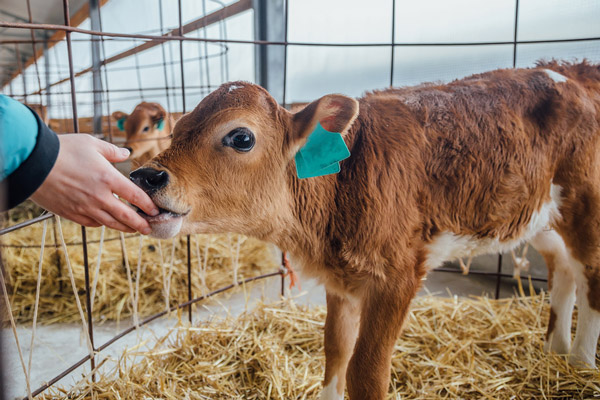I had just come off a four-year stint as a traveling consultant auditor, and in those four years I’d worked in all 50 states and 11 countries. I wanted to find a way to share my experience and knowledge to help others, and this opportunity seemed like the perfect fit.
In Russia, they had a dairy program that had a desire to learn more about food safety programs as their facility was improving. I put together a HACCP (Hazard Analysis and Critical Control Points) course and put all the materials together—frankly, it took about half a suitcase just to carry all those goodies!
In early October of that year, I set off for Russia. ACDI/VOCA—an international non-profit organization—worked with me extensively before I left, making sure I had everything I needed for the trip. Upon arriving, I spent a few days getting oriented, managed to sneak in a little tour of the city, and made sure I got to understand things.
I spent 17 days in Cheboksary. The main goal was to help them develop their food safety/HACCP plan. During my time there, we reviewed their operation, went through the 12 steps of HACCP, trained the team to think like food safety operators, developed their critical limits, and set up the documentation for their programs. In addition, we reviewed some of their prerequisite programs, like GMPs (a.k.a. good manufacturing practices), environmental monitoring and training programs, to make sure they supported the food safety program appropriately. We also spent a lot of time reviewing equipment on the production floor, making sure it would be able to maintain food safety the way we had designed the program.
By the end of my time in Cheboksary, the dairy program had a HACCP plan in place, as well as a trained individual who was ready to take over and be in charge of the team. We stayed in contact for about two years so I could continue to answer any food safety-related questions she might have, and we are still on good terms—in fact, the plant engineer’s daughter (who at the time was studying English at the university) ended up staying with my family in the U.S. for four months while she was perfecting her English!
For me, the highlight of volunteering was getting to share the knowledge I had acquired over the course of my career with people who needed it and who could use it to build their food safety programs. (And it didn’t hurt that I enjoy traveling! After all, what other opportunities were there to go to Russia in 2005?) So I had a great time.
There are altruistic reasons for volunteering, but there are also the things you can gain from volunteering: you can gain other insights, you can learn about other cultures, and you can get a nice ego boost. Mostly, though, you get a chance to share your knowledge and experience with people who need those insights.
One of our promises at Feeding Tomorrow, the Foundation of the Institute of Food Technologists, is to leverage the collective knowledge of our community to pursue food and nutrition solutions for those in need, particularly those at the bottom of the economic pyramid. Feeding Tomorrow recently launched a new program called Volunteer Globally to help more science of food professionals have the kind of experiences that I had on my volunteer trip to Russia. So, if you have been sitting on the fence thinking at all about volunteering—particularly in a global program—all I can say is…why are you still sitting there? Do it! Get off the fence. You’ll come back enriched by the experience, and you’ll make new contacts and friends for the rest of your life. I cannot recommend it enough.
Be a Part of Volunteer Globally


